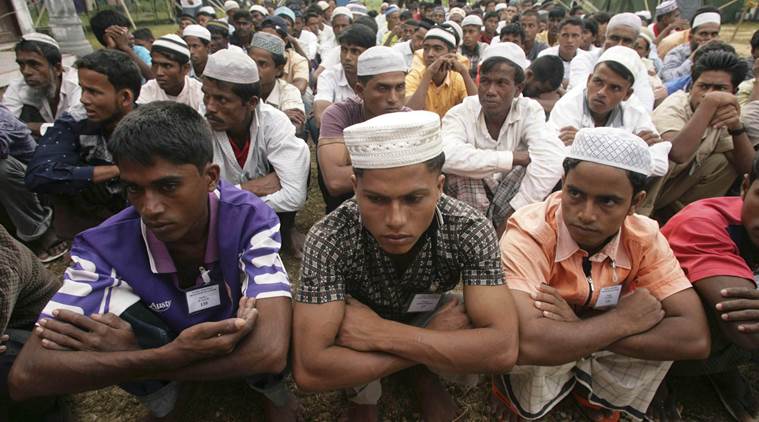Rohingya Crisis needs no introduction in today’s date. Rohingya is an ethnic and aboriginal group from Myanmar, mostly Muslims, who are based in Rakhine province of West Myanmar. They speak a dialect of Bengali as against Burmese. One mass exodus of Rohingya first happened in 2012, during the first wave of organised attack against them by the Burmese army.
The number of Rohingyas in India is indubitably more than 40,000 of which around 5,700 are in Jammu. According to a report, of these, only 16,000 are said to be registered with the United Nations. In 2017, Border Security Force apprehended 87 Rohingya along the Bangladesh border and 76 were sent back to Bangladesh.
This myriad number of Rohingyas created a breeding ground for political scavenging. Political scavenging is a conspicuous scenario of Indian political extravaganza. However, the NDA government took a stern stand towards the Rohingyas. The BJP, in the run-up to the 2014 elections, had promised that an identification drive would be undertaken to identify people living illegally in India and these people would be deported back to their country of origin.
Two batches of Rohingyas have already been deported. There are no separate rules for Rohingyas, all illegal immigrants are detected, detained and deported under provisions of the Passport Act, 1920 or the Foreigners Act, 1946.
Apart from the deportation, clattered and clanged by the decisiveness and firmness of the government, 1300 Rohingyas have resolved to go back to Bangladesh voluntarily. Hundreds of Rohingya Muslim families have left India for Bangladesh since seven Rohingya men were deported to their home country, and more are preparing to flee a crackdown.
The deportation of the Rohingyas as well as their voluntary departure paint the picture of the illegals and illicit immigrants living in India. They have no other choice but to go back to their roots and place. This has ended the dubious culture which was burgeoned to its full valour during UPA Era. The mollycoddling and cosseting for the sake of vote bank politics is now over. The BJP is a party that stands for the rights of Indians, as opposed to its rivals who are concerned with illegal Bangladeshi immigrants.
Addressing the press last year, BJP president Amit Shah hit out at TMC Chief Mamata Banerjee for her appeasement politics. “The BJP is committed to the national security and safety of its citizens. This is our top priority. All other parties should clear their stand,” he said, asking them to answer in ‘yes or no’ on whether they support the NRC.
The chaperone and minder of such illegals such as Prashant Bhushan have now become futile under the terse disapproval of NDA Government. They have become fruitless because they do not enjoy the political clout of the UPA Era.
Advocate Prashant Bhushan once alleged that the government was treating Rohingya refugees differently from other refugees such as those from SriLanka. He said the Centre and Tamil Nadu had reached an understanding that Sri Lankan refugees would “have access to at least education and healthcare, which Rohingya refugees are being denied”.
It may not be erroneous to say that the current action has emphasised on the implications of India’s approach in handling the Rohingya crisis. This deportation highlights the fact that India is no longer a bed of roses for illegals. The uncompromising and unsparing attitude of India towards the illegals ardently suggests that India will continue its crackdown on illegal immigration with renewed vigor and valid algorithm. Clearly, Government does not want India to be world’s refugee capital as Indian economy is still developing. Some features like low per capita income, higher population below poverty line, poor infrastructure, agriculture-based economy and a lower rate of capital formation, makes it a developing economy. We cannot burden our resources any further.
